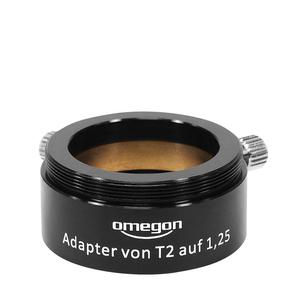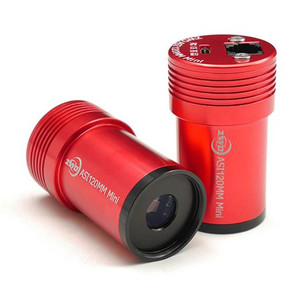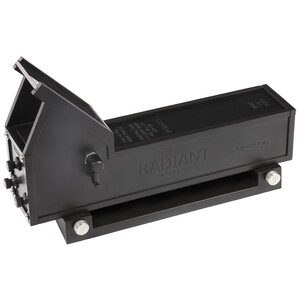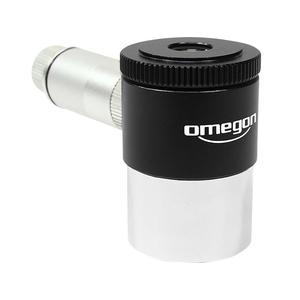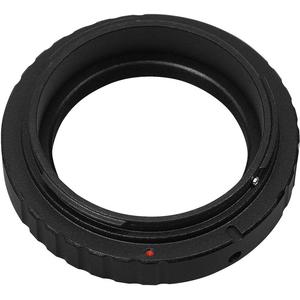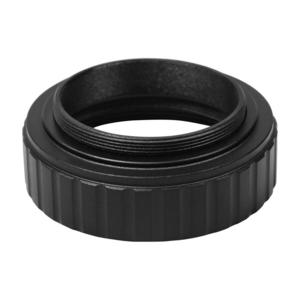Omegon advanced off-axis guider - star guiding made easy
The Omegon off-axis guider offers a simple way of accurately guiding your telescope when taking astrophotos. It is not then absolutely necessarily to have a large and heavy guide scope, as this does the job more simply. Do you want your telescope to only carry a small additional load and to avoid it being overloaded?
The off-axis guider is extremely compactly built and weighs only 200 grams. This means that it is in the most suitable method for guiding when using smaller telescopes or mounts.
The off-axis guider works very simply
The off-axis guider is simply attached and locked into your 2” focuser. It has a T-2 thread on the camera side - the standard for the problem-free attachment of your camera. If you photograph using a DSLR, then you only need the correct T-ring in addition - that is all.
As the light passes through the off-axis guider, a small part is diverted via a small prism on the side. A 1.25” crosshair eyepiece or auto-guider can be inserted into the guider. You will then be able to start guiding just as soon as you have located a suitable guide star in the field of view.
Long exposures - punctiform astrophotos
You will have already seen a host of beautiful astrophotos - magnificent galaxies with impressive spiral arms, luminous red hydrogen nebulae, globular clusters with their uncountable stars looking as if bedded on velvet. All these photos are the result of long exposures - photos which you can also take with the help of an off-axis guider.
You can now precisely control the guiding and thereby achieve deep sky photographs with perfectly punctiform stars.
The advantages in a nutshell:
- off-axis guider for punctiform astrophotos
- weight-saving: weighs only 200 grams
- easy connection to the telescope via 2” connector
- T-2 thread for connecting a camera
- for punctiform guiding of your astrophotos
- for auto-guiders with T2
Our expert comment:
There are three T2 extenders included with the off-axis guider - 28mm, 14mm and 7mm in length.
These extenders let you accurately set the spacing between the off-axis guider, auto-guider and astronomy camera.
The auto-guider connection has sliding focusing with a 7mm hub. This allows you to compensate for any focus differences remaining.
The telescope-side of the Omegon OAG comes provided with a 2 inch nosepiece and has a T2 connector on the other side. The minimum installation length is 3cm. SCs and most refractors will have 3cm of back focus available. 3cm is usually too much for Newtonian telescopes - this should be checked, before ordering, to ensure that 3cm of back focus really is available. The connectors for the guiding camera and the astronomy camera can be rotated on the focuser without having to change the position of the OAG. The OAG can also be pivoted and can be moved through an angle of about 100 degrees without the camera having to rotate with it. This allows the prism to be used over a wide area of sky, significantly improving the chances of finding a guide star. The tilt angle of the prism can also be adjustable by a few degrees, allowing it to be used over an even larger area of sky. The prism has an edge length of 9mm. The chips used in auto-guiders are usually smaller and are hence adequately illuminated.
The Orion StarShoot or the Starlight Lodestar guiding cameras are particularly suitable. A classical reticule eyepiece may be used instead, if you do not wish to use an auto-guider - this would require an eyepiece adapter in addition to the reticule eyepiece.
